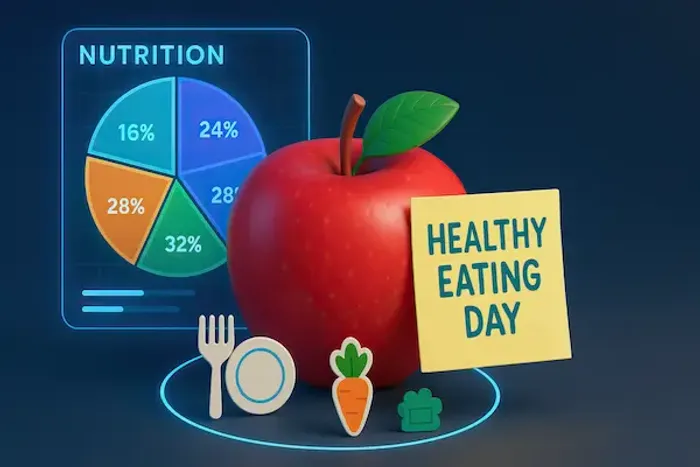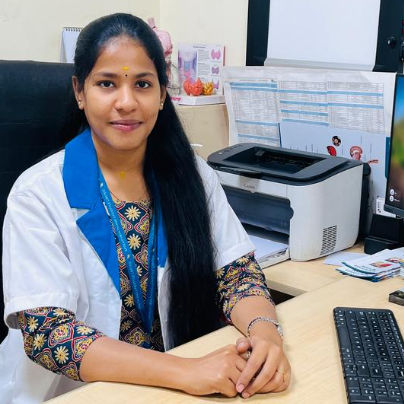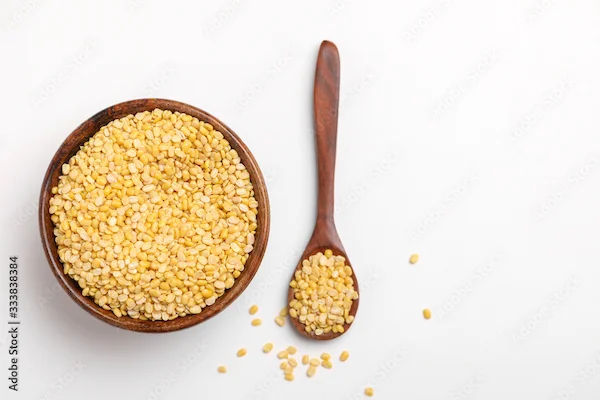Balanced Diet Chart For Healthy Eating
Discover a balanced diet chart for healthy eating with nutrient-rich foods, portion control tips, and daily meal planning guidance.

Written by Dr. Mohammed Kamran
Reviewed by Dr. Rohinipriyanka Pondugula MBBS
Last updated on 13th Jan, 2026

Introduction
Eating a balanced diet is one of the best ways to stay healthy, feel energetic, and prevent diseases. A well-planned diet provides all the essential nutrients your body needs to function properly. But what exactly is a balanced diet, and how can you follow one? Let’s break it down in simple terms.
What is a Balanced Diet?
A balanced diet includes a variety of foods in the right proportions to provide the necessary nutrients—proteins, carbohydrates, fats, vitamins, minerals, fibre, and water. No single food contains all the nutrients, so eating a mix of different foods is key.
Key Components of a Balanced Diet
Let’s see what are the components of a balanced diet:
1. Carbohydrates (Energy Providers)
Carbohydrates are the body’s main source of energy. They should make up about 45-65% of your daily calorie intake.
Good sources: Whole grains (brown rice, oats, whole wheat), millets (ragi, bajra), fruits, and vegetables.
Avoid: Refined carbs like white bread, sugary snacks, and processed foods.
2. Proteins (Body Builders)
Proteins help in muscle repair, immunity, and overall growth. Adults need about 0.8-1g of protein per kg of body weight daily.
Good sources: Eggs, lean meats, fish, lentils, beans, tofu, dairy (milk, yogurt, paneer), nuts, and seeds.
3. Fats (Essential for Health)
Healthy fats support brain function, hormone production, and nutrient absorption. About 20-35% of daily calories should come from fats.
Good sources: Avocados, nuts, seeds, olive oil, ghee (in moderation), and fatty fish (salmon, mackerel).
Avoid: Trans fats (found in fried and processed foods) and excessive saturated fats (butter, red meat).
4. Vitamins & Minerals (For Immunity & Functioning)
These micronutrients keep your immune system strong, bones healthy, and organs functioning well.
Vitamin A (Carrots, spinach, sweet potatoes): Good for vision and skin.
Vitamin C (Citrus fruits, bell peppers, amla): Boosts immunity.
Vitamin D (Sunlight, eggs, fortified milk): Strengthens bones.
Calcium (Milk, yoghurt, leafy greens): Essential for bones and teeth.
Iron (Spinach, lentils, red meat): Prevents anaemia.
5. Fibre (For Digestion & Gut Health)
Fibre keeps your digestive system healthy and prevents constipation.
Good sources: Whole grains, fruits (apples, bananas), vegetables (broccoli, carrots), and legumes.
6. Water (Essential for Hydration)
Drink at least 8-10 glasses of water daily to stay hydrated and support metabolism.
Consult Top Nutritionists
Sample Balanced Diet Chart (Indian Diet Plan)
Here’s a simple daily meal plan to help you eat a balanced diet:
Breakfast (7:30 AM - 8:30 AM)
Option 1: Oats with milk + banana + nuts
Option 2: 2 rotis + dal + vegetable curry
Option 3: Poha with peanuts and veggies
Mid-Morning Snack (11:00 AM - 11:30 AM)
A handful of nuts (almonds, walnuts) + 1 fruit (apple, pear)
Or a cup of yoghurt with chia seeds
Lunch (1:00 PM - 2:00 PM)
1 bowl of brown rice + dal + sabzi (spinach, beans, or any vegetable) + 1 small bowl of curd
Or 2 rotis + dal + salad
Evening Snack (4:30 PM - 5:30 PM)
Green tea + roasted chana/makhana
Or a fruit smoothie (without sugar)
Dinner (7:30 PM - 8:30 PM)
1 bowl of khichdi (rice + dal + veggies) + curd
Or 2 rotis + vegetable soup
Post-Dinner (If Hungry)
A glass of warm milk (optional)
Tips for Healthy Eating
Eat Mindfully: Chew slowly, avoid distractions (TV/phone), and listen to your hunger cues.
Portion Control: Avoid overeating; use smaller plates if needed.
Limit Processed Foods: Cut down on packaged snacks, sugary drinks, and fried foods.
Cook at Home: Homemade meals are healthier and more nutritious.
Stay Hydrated: Drink water, herbal teas, or coconut water instead of sodas.
Reduce Salt & Sugar: Excess salt can raise blood pressure, and too much sugar leads to weight gain.
When to Consult a Doctor or Nutritionist?
If you have specific health conditions like diabetes, high blood pressure, or digestive issues, a customized diet plan can help. You can consult a nutritionist or dietitian through Apollo 24|7 for expert advice tailored to your needs.
Conclusion
A balanced diet doesn’t mean giving up your favourite foods—it’s about making smarter choices. Small changes, like swapping white rice for brown rice or adding more vegetables to meals, can make a big difference in your health.
Book a consultation with a nutritionist on Apollo 24|7 for a diet plan that suits your lifestyle and health goals.
Consult Top Nutritionists
Consult Top Nutritionists

Dr. Ramalinga Reddy
General Physician
5 Years • MBBS MD General medicine
Bengaluru
PRESTIGE SHANTHINIKETAN - SOCIETY CLINIC, Bengaluru
Dt. Ila Sharma
Clinical Nutritionist
18 Years • Master in food & Nutrition
Gurugram
VIPUL GREENS - SOCIETY CLINIC, Gurugram
Ms. Bhavana Shetty
Dietician
7 Years • DDHN & Masters in Clinical Nutrition & Dietetics
Bangalore
Apollo Sugar Clinic, Seetha circle bangalore, Bangalore

Dt. Prabhavathy
Clinical Nutritionist
8 Years • Msc Human Nutrition & Nutraceuticals
Madurai
Apollo Sugar Clinics, Madurai, Madurai
Dr Sumanth R
General Physician
2 Years • MBBS
Bengaluru
PRESTIGE SHANTHINIKETAN - SOCIETY CLINIC, Bengaluru
Consult Top Nutritionists

Dr. Ramalinga Reddy
General Physician
5 Years • MBBS MD General medicine
Bengaluru
PRESTIGE SHANTHINIKETAN - SOCIETY CLINIC, Bengaluru
Dt. Ila Sharma
Clinical Nutritionist
18 Years • Master in food & Nutrition
Gurugram
VIPUL GREENS - SOCIETY CLINIC, Gurugram
Ms. Bhavana Shetty
Dietician
7 Years • DDHN & Masters in Clinical Nutrition & Dietetics
Bangalore
Apollo Sugar Clinic, Seetha circle bangalore, Bangalore

Dt. Prabhavathy
Clinical Nutritionist
8 Years • Msc Human Nutrition & Nutraceuticals
Madurai
Apollo Sugar Clinics, Madurai, Madurai
Dr Sumanth R
General Physician
2 Years • MBBS
Bengaluru
PRESTIGE SHANTHINIKETAN - SOCIETY CLINIC, Bengaluru
.jpg)



